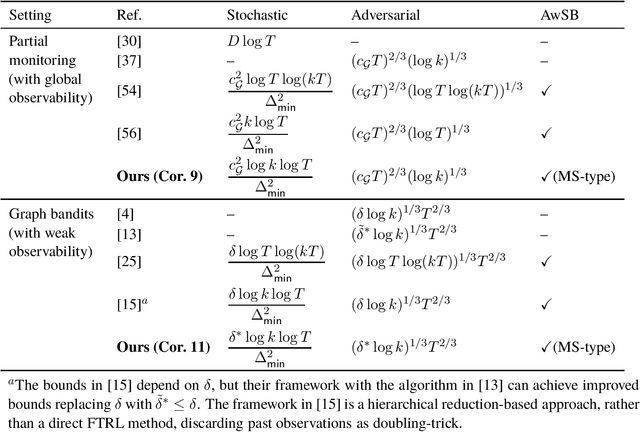A Simple and Adaptive Learning Rate for FTRL in Online Learning with Minimax Regret of $Θ$ and its Application to Best-of-Both-Worlds
Paper and Code
May 30, 2024
Follow-the-Regularized-Leader (FTRL) is a powerful framework for various online learning problems. By designing its regularizer and learning rate to be adaptive to past observations, FTRL is known to work adaptively to various properties of an underlying environment. However, most existing adaptive learning rates are for online learning problems with a minimax regret of $\Theta(\sqrt{T})$ for the number of rounds $T$, and there are only a few studies on adaptive learning rates for problems with a minimax regret of $\Theta(T^{2/3})$, which include several important problems dealing with indirect feedback. To address this limitation, we establish a new adaptive learning rate framework for problems with a minimax regret of $\Theta(T^{2/3})$. Our learning rate is designed by matching the stability, penalty, and bias terms that naturally appear in regret upper bounds for problems with a minimax regret of $\Theta(T^{2/3})$. As applications of this framework, we consider two major problems dealing with indirect feedback: partial monitoring and graph bandits. We show that FTRL with our learning rate and the Tsallis entropy regularizer improves existing Best-of-Both-Worlds (BOBW) regret upper bounds, which achieve simultaneous optimality in the stochastic and adversarial regimes. The resulting learning rate is surprisingly simple compared to the existing learning rates for BOBW algorithms for problems with a minimax regret of $\Theta(T^{2/3})$.
 Add to Chrome
Add to Chrome Add to Firefox
Add to Firefox Add to Edge
Add to Edge